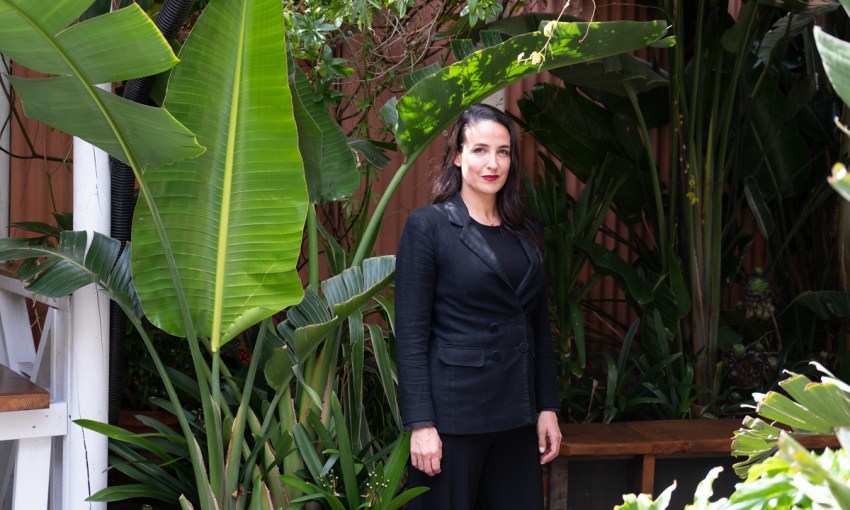As global cities continue to be affected by COVID-19, it’s comforting to know that Adelaide is doing just fine. This is why Biela McMillan argues now is the perfect time to reframe Adelaide's economic focus and brand around wellbeing.
Now is the time to include wellness at the core of city planning
What’s clear about current global circumstances is we all sit in different corners of a global economy.
If you cast your mind east or towards the Northern Hemisphere, Adelaide is doing just fine, thank you very much. And I mean it: Thank you very much. Because you, doing what you’re doing in this corner of our global economy, is working.
So here we are in Adelaide, one of the safest and loveliest working cities in the world – a huge amount of green space per capita, amazing value for money, and COVID-free (fingers crossed).
We’re a city of firsts, a festival state, an education state – as many positive attributes as you could think to mention.
But so what? What do we do as a city? What could we do as a city?
Well, nothing is anything until you say it is, and so I believe we need to discuss how we are going to organise Adelaide so we can hang our hat on something. Something that will benefit us all personally.
Wellness is the aim. If we aren’t all here for our common health and wealth, what are we here for? And if we want to be well as individuals and amount to something as a city, we need to know what must happen in order for us to say, ‘We are a city of wellbeing and here is why.’
Colonel William Light, of course, put what we now consider to be wellbeing at the core of his design in 1836. Light’s vision set the tone for much of the city’s development.
When Light was designing Adelaide, his plans included surrounding the city with 2,300 acres of land, which became known as the Adelaide Park Lands. Light’s implementation of planning principles for a beautiful and healthy city melded sensitively and intelligently with the landscape. This is our city’s unique position. But wellbeing is more than trees and parks and fresh air.
I have co-founded WellCity Adelaide as a community mobilisation mechanism that acknowledges a city’s wellbeing includes, and also transcends, physical, mental and emotional wellbeing.
In addition to health, we want to see Adelaide’s wellbeing in its arts and culture, its built and natural environment, its learning, technology and digital space, circular economic practices, as well as policy, procurement and governance.
We’re going to organise, itemise, substantiate and articulate return on investment, and then take action to support the cultivation of Adelaide’s wellbeing.
Together with our presenting partners, and supported by the Committee for Adelaide and the International WELL Building Institute in New York, WellCity Adelaide hosted a series of roundtable discussions covering the areas stated above to organise a vision for Adelaide as a city of wellbeing.
More than 200 leaders from a broad spectrum of Adelaide’s economy debated what wellbeing would look like in their domains of expertise, what could stop it from occurring, and what policies and programs could be implemented to help get there.
The roundtables discussed delivering wellbeing through digital and data security, as incidences of cyber crime overtake incidences of physical/real life crime; gamifying wellbeing to inspire adoption of wellbeing practices; the establishment of an index to give people a benchmark for wellbeing considerations as a city; and shifting our civil duty of care to incorporate wellbeing factors.
Unifying Adelaide across a common vision for wellbeing is in progress. Through WellCity Adelaide’s stewardship and partners, including Flinders University’s Orama Institute, UniSA’s Rosemary Bryant AO Research Centre and University of Central Queensland’s Appleton Institute, SA Health’s Wellbeing SA and the Committee for Adelaide, we are working towards articulating an evidence-based Adelaide Standard of Wellbeing. This Standard will be democratically designed and made available in the public domain.
And then comes the doing.
WellCity Adelaide – and anyone else who wants to join in – can help individuals, communities, and institutions to achieve the Adelaide Standard of Wellbeing outcomes. Because when we build towards a common standard, we cultivate personal wellbeing.
As the Declaration of Montreal on Wellbeing in Cities outlines, this encompasses the governance you abide by, the procurement of your goods and services, how you learn in order to grow, your symbiotic relationship with the environment, and your cultural and artistic engagement and expression.
And when you look back at what you’ve done, you’ve helped build a wellbeing industry, culture, practice, environment and, ultimately, a city of wellbeing.




